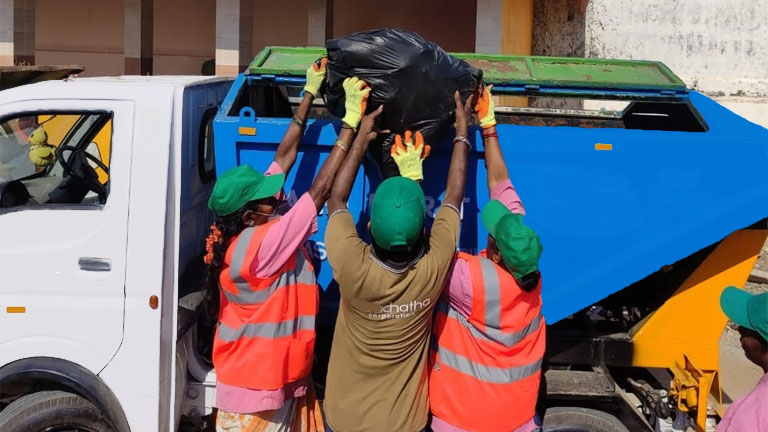
The work of waste picking and garbage collection may seem small and insignificant, but in reality, it is the backbone of our urban and rural lifestyles. Recent statistical reports indicate that approximately 15 to 20 million people worldwide depend on informal waste picking. Despite being a source of livelihood for millions, this work is often overlooked and undervalued. The following are the main reasons why people don’t want to do waste picking and garbage collection as a job.
1: Social Stigma and Lack of Dignity
Societal sentiment toward waste-related work is often negative. When people around you talk about a sanitation worker or a domestic waste picker, the dignity is subtly lost in words. This also impacts families; children face taunts in school, and family social life is limited. They think this work is only for low-class people. This is why most people consider this job to be something to avoid in their lives.
2: Low Salary and Economic Instability
Unstable income patterns impact your daily routine, future plans, and savings. Waste pickers and informal waste collectors don’t receive regular wages or benefits. Families often rely on the money they earn from sales, leaving little room for savings at the end of the month. This financial uncertainty drives people to seek other work. They get less money and a lower salary compared to other jobs.
3: Health and Safety Risks
It is important to know that handling waste poses numerous health risks. Wet and rotten waste can be a source of infectious diseases. Official and reported statistics are also worrying; in recent years, several sanitation workers have died while cleaning sewers and septic tanks, highlighting the lack of safety equipment and training. These incidents demonstrate that the risks aren’t just discomfort but can also be fatal.
4: Lack of Formal Protection and Benefits
Your place in an equal waste management structure isn’t guaranteed unless the work is formalized. Benefits like government pensions, health insurance, accident insurance, and salary protection are often unavailable. Even a minor illness can lead to a major financial setback. Often, work is done on temporary contracts, which erodes job security and forces people to look for permanent alternatives.
5: Impact of Caste and Class Identity
In countries like Asia and other developing nations, the history of sanitation and waste-related work is deeply intertwined with social and caste divisions. According to government statistics, a large number of sanitation workers belong to the Scheduled Castes, the Scheduled Tribes, and the Other Backward Classes. This social imbalance impacts a person’s social identity and opportunities. When work itself becomes the identity of a group, people hesitate to pursue that profession.
6: Lack of Respect and Recognition for Work
Work that is considered unattractive in the surrounding society receives little institutional respect. Local administrations and citizens sometimes do not give sanitation workers due recognition. As a result, the social value of the work diminishes, and people do not consider it a long-term career option.
7: Expanding Options and Aspirations of the Younger Generation
New occupational and educational opportunities have given the next generation more choices. Young people now seek new opportunities and prefer to avoid traditional, risky, or low-esteem occupations. This is natural; your goal should also be to provide children with better opportunities and avoid risky jobs.
Pathways to Change: What Can Be Done
Both you and society can take responsibility for addressing the problem. First, formalization can bring benefits, and providing regular wages, insurance, and safety equipment is essential. Second, training and sanitation equipment will reduce health risks. Third, raising awareness among local authorities and citizens will bring respect to the work. For example, in some cities, collective models and cooperatives have improved the income and dignity of waste pickers; promoting these could be a practical step.
Modern waste management practices can also be supported with infrastructure improvements like the tricity dumper NC and similar services in other cities. By providing better tools and organized systems for garbage collection, not only can the workload of waste pickers be reduced, but safety and efficiency can also be improved.
You have the power to make a big impact with small steps. Practice proper waste disposal, be conscious about recycling, and appreciate the work of local sanitation workers.
Wastepicking and garbage collection are not just a profession, but a vital part of the social system. The sooner you understand that this work is essential to society, the better policies and behaviors can change. By providing safety, respect, and economic opportunity, you will not only make these jobs acceptable but also improve the quality of life for the families who depend on them. Small changes can bring great hope; you, too, can take steps today to make these invisible workers visible.


